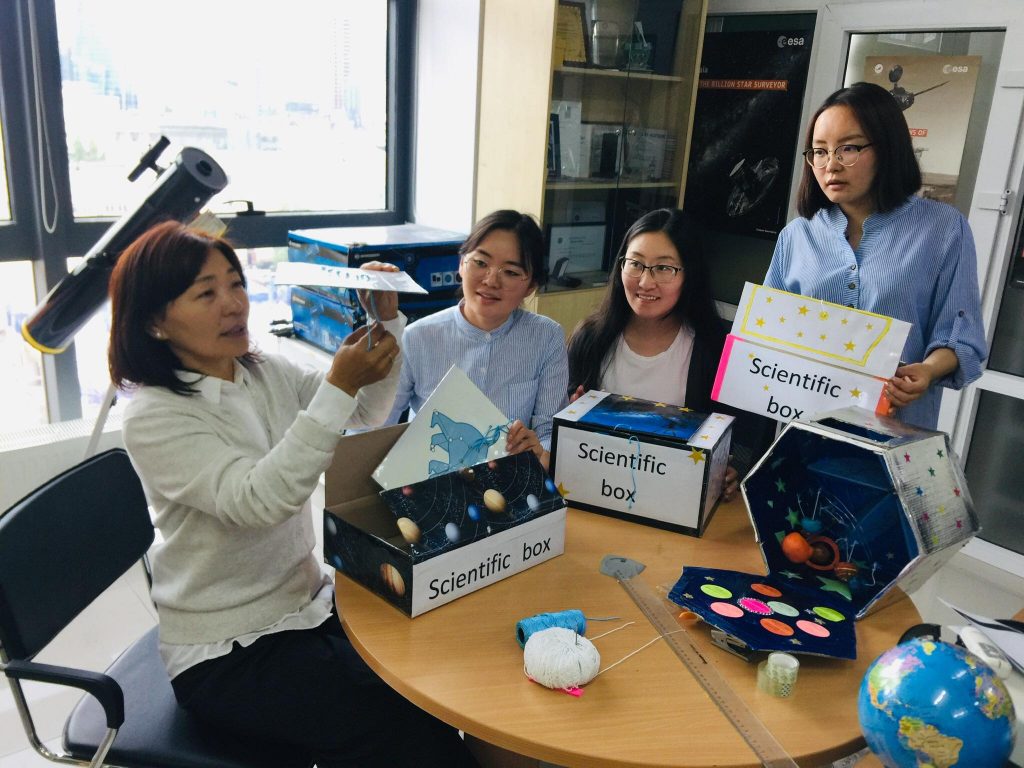In a world becoming increasingly detached from science, COVID-19 has underscored the critical nature of the scientific process and its place in the community. While medical and health-related sciences are directly involved in fighting the pandemic, other fields are finding their own ways to contribute by tackling the social and economic fallout. Among these efforts, the International Astronomical Union Office of Astronomy for Development (IAU OAD), together with partners, is funding small projects across the globe to support communities in overcoming some of the effects of COVID-19.
The link between studying the stars and fighting a deadly pandemic may not be obvious, but astronomy and related fields possess strengths that can be applied to solving everyday challenges and benefitting communities. The term Astronomy for Development (or more broadly, Science for Development) is most often used to denote projects that use astronomy, including its practitioners, skills and infrastructures, as a tool for development. Previous Astronomy for Development projects, including those supported by the OAD, have shown that astronomy’s strengths and unique characteristics could prove valuable in combating some of the challenges posed and exacerbated by the pandemic.
The OAD, the African Astronomical Society and the African Planetarium Association are collaborating to provide small project grants to support communities worldwide, especially underprivileged and underserved groups who bear the brunt of such socio-economic upheavals. An Extraordinary Call for Proposals was launched in May 2020 for projects or partnerships that in some way use astronomy, in any of its aspects (including skills, methodologies, tools, infrastructure, inspiration or even just networks of astronomers/enthusiasts), to help mitigate some of the negative effects of the pandemic. Modelled on the OAD’s annual call for proposals, a process was set up to quickly and efficiently evaluate submitted applications. 27 experts from various countries and different professional backgrounds reviewed the proposals in record time. A total of 43 projects were selected and collectively granted a sum of 804 443 ZAR (approximately €40 000).
The selected projects include initiatives to develop and distribute educational materials in Mongolia, Canada, Chile, Ethiopia, and other countries to reach populations with little or no internet access. These projects embed astronomy content in their materials to take advantage of the inspiring potential of astronomy and use the natural laboratory of the sky to motivate and educate children and parents alike. A number of projects will also be using astronomy in remote teaching and learning programmes to continue engaging students during school closures. These projects, from Ghana and Pakistan to Russia and Brazil, plan to leverage low-tech and low-bandwidth solutions such as WhatsApp and sms to reach those in underserved areas. Other projects in Italy, Greece, Mexico, and Nigeria will be combining art and astronomy to help lift people’s spirits during these stressful times. Finally, other projects will apply certain skills found in the astronomy community, such as data analytics and programming, to develop solutions to some of the challenges created by COVID-19.
List of all projects funded under this call.
The OAD has also compiled a list of proposals that were reviewed but not funded.

